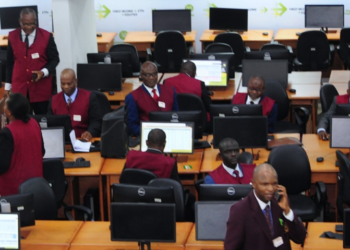A spike in raw materials cost has caused 7UP Nigeria Plc to record a N10.7 billion loss before tax for the financial year ended March 2017. Due to the loss, the company was unable to declare a dividend, for the first time in over 5 years.
Here are highlights of the result:
- Revenue increased from N85.6 billion in 2016 to N108.2 billion in 2017.
- Cost of sale went up from N60.6 billion in 2016 to N90.5 billion in 2017.
- Gross profit fell from N25 billion in 2016 to N12.9 billion in 2107.
- Selling and distribution increased from N11.8 billion in 2016 to N13.9 billion in 2017
- The company recorded a loss after tax of N10.7 billion in 2017 compared to a profit after tax of N3.34 billion in 2016.
Why no dividend
The company apparently decided that it will not be paying dividends because it had reported a loss after tax. Most companies avoid paying dividends when they declare losses, even though technically losses can be paid out of retained earnings (past profits that was not distributed). This incidentally is the first time in about 5 years that Seven Up (7UP) has gone a financial year without paying dividends.
7UP stock is a favourite of many investors due to its stellar dividend and profit making records. Many domestic retail investors prefer to invest in companies that pay regular dividends. From 2012 to 2016 the company has consistently paid dividends. Dividend per share was N2 in 2012 and 2013. Dividend payments for 2014, 2015 and 2016 were N2.20, N2.50 and N2.75 respectively.
Bad year for FMCG’s
A look at Seven Up’s result indicates the major cause of the loss was an increase in raw materials cost. The cost of raw materials and consumables increased from N48 billion in 2016 to N85.6 billion in 2017.
The increase in raw materials cost was a common trend for most Fast Moving Consumer Goods (FCMGs) due to a depreciation of the Naira against the dollar in 2016. Most rely on imported raw materials for their input. For example, of the N300 billion in revenue that Guinness Nigeria Plc made in 2016, N113 billion was spent on raw materials and consumables. Guinness also reported a loss after tax during the financial year ended June 2016.
The depreciation of the naira, ensuing scarcity and foreign exchange crisis that was prevalent most of last year also lead to an increase in their finance and raw materials cost. Companies with foreign denominated loans also suffered from the exchange rate spike as their loan balances more than doubled in about two years. For example, a loan of about $100 million in 2014 will be valued at N16 billion in 2014. However, with the devaluation of the naira in 2016, the loan value spiked to N36 billion costing an additional N20 billion in loans that need to be serviced.
Nestle Nigeria Plc for example saw its finance cost increase from N4.8 billion in 2015 to N20 billion in 2016. Some of these firms have opted for rights issues in order to pay down these debts. Unilever Nigeria recently issued a notice to the NSE of its intention to raise N58.85 billion through a rights issue. Minority shareholders have also raised opposition to these share issues because of the dilution that will occur, and the possibilities of the parent companies taking the companies private.
The loss also highlights the risks of companies relying on foreign input for production. These firms would be better of getting their raw materials from local suppliers, and many of them have taken steps to do so. Shares of the company are down 39% underperforming the Nigerian Stock Exchange (NSE) All Share Index which is up 20.2%.

![[Results] Higher Costs Chops off 7up Margins](https://nairametrics.com/wp-content/uploads/2015/07/7up-Neymar.jpg)
















